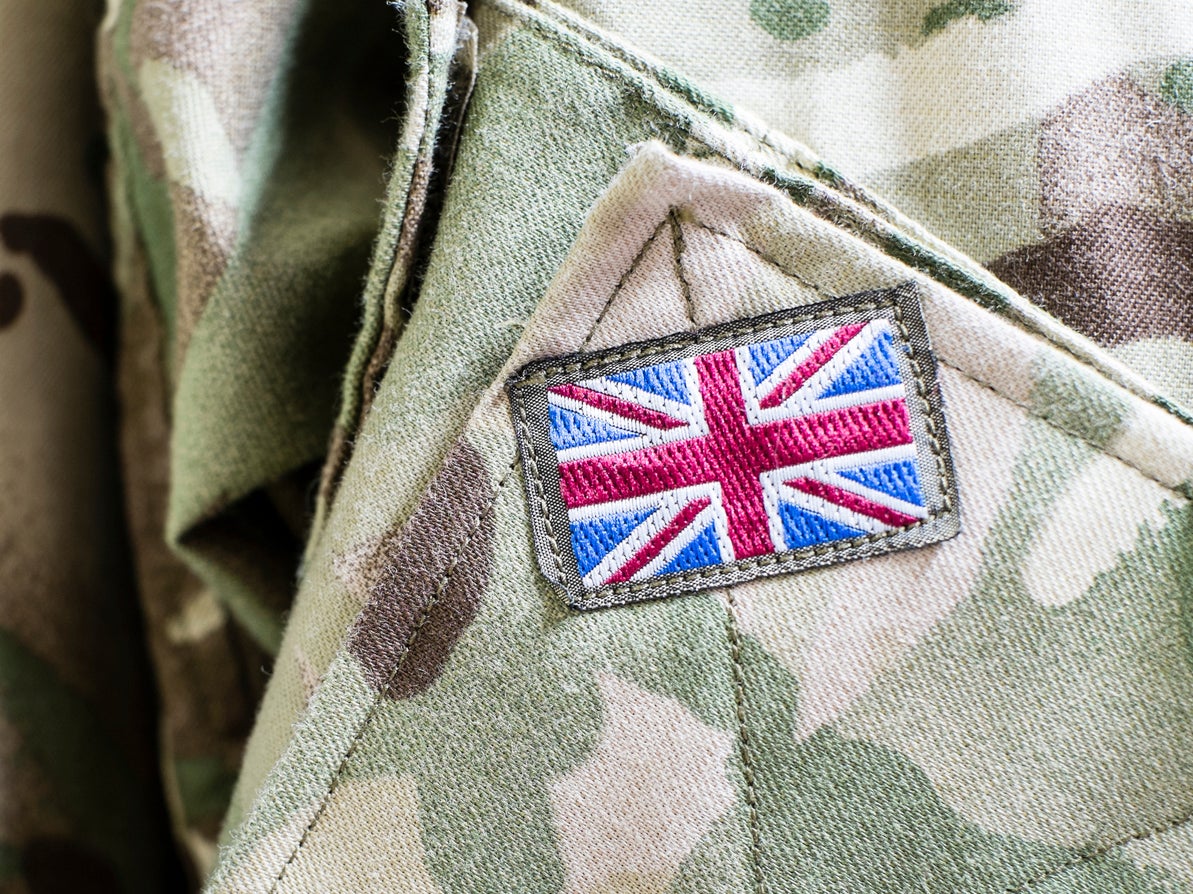The Independent's journalism is supported by our readers. When you purchase through links on our site, we may earn commission.
Why has it taken the arrest of serving soldiers for alleged terror offences to get us talking about neo-Nazi groups in the UK?
We need to dispel the myth that far-right terrorists are 'lone wolves' when there is so much evidence that they are emboldened by a network of extremism


Your support helps us to tell the story
From reproductive rights to climate change to Big Tech, The Independent is on the ground when the story is developing. Whether it's investigating the financials of Elon Musk's pro-Trump PAC or producing our latest documentary, 'The A Word', which shines a light on the American women fighting for reproductive rights, we know how important it is to parse out the facts from the messaging.
At such a critical moment in US history, we need reporters on the ground. Your donation allows us to keep sending journalists to speak to both sides of the story.
The Independent is trusted by Americans across the entire political spectrum. And unlike many other quality news outlets, we choose not to lock Americans out of our reporting and analysis with paywalls. We believe quality journalism should be available to everyone, paid for by those who can afford it.
Your support makes all the difference.If the alarm bells haven’t started ringing yet, they certainly should be now. Yesterday four British Army men were arrested for allegedly being members of a banned violent far-right group. They were charged under Section 41 of the Terrorism Act 2000.
An army whose finest moment was its fight against Hitler had to suffer the indignity of having four servicemen who are suspected of being part of a group that worshipped him. My brother, a proud, turbaned Sikh, served in that same army.
If you think I’m exaggerating about all this it's worth knowing a bit more about National Action, the group of which these four men are allegedly members.
Two years ago National Action held a “Hitler was right” demo in Newcastle. They exploded in prominence from that incident, which the national media largely ignored.
That same year, 26-year-old Zack Davies, a National Action member, tried to behead an Asian dentist from Leeds in a Tesco store. He was heard shouting “white power”.
In 2016 around 20 of its members did Nazi salutes during a flash mob in York. Five of them were later arrested. Another was later arrested for making a video wishing for “a real Holocaust”.
None of these incidents was flagged up as a cause of concern. National Action’s own website called for fascism and detailed that it wanted to “ethnically cleanse” the UK.
Despite repeated calls by activists and commentators (including myself) to ban the group, the government took action only after it praised Jo Cox’s killer. And yet the Home Office still waited until December 2016 to implement a full ban.
But National Action hasn’t gone away. By all signs it has only become more prominent.
This year an ITV reporter found the group's members meeting in secret at a training camp in the Peak District. One ex-member was also convicted for making a pipe bomb and warning “more was to come” in writings. His room was draped with neo-Nazi flags.
It’s clear that the police are finally taking the far-right terror threat more seriously, and we should welcome that. But it’s also clear that the establishment isn’t. National Action is merely one group in a general environment where neo-Nazism has become more popular again. We keep saying it, but a lot of people simply don’t want to admit it. The Government’s own Prevent terrorism programme has found a stark increase in reports of white extremism.
You won’t hear much discussion about National Action on TV or in radio debates. You won’t read the press bandying around phrases like “terror group” and “white extremism” either. There won’t be many people asking why young white men are turning to neo-Nazism.
There won’t be a national conversation about any of this. There won’t be many calls for more prominent groups like Britain First to be banned, despite their threats.
This is because most people think violent far-right extremism in Britain is full of crazed “lone wolves” who barely pose any harm. Except an authoritative report in 2011 detailed that “far-right terrorists are not lone wolves but are connected with, influenced by and often helped by organisations whose beliefs they share… In fact, those involved in apparent one-person actions have in all cases had clear and often long-standing involvement with organised groups." We can’t continue to ignore such information.
But the establishment will shrug this off like when The Times emphasised the “lone wolf with mental health problems” status of Darren Osborne, who was suspected of ploughing a van into a group of Muslims. He was later charged with terrorism-related offences.
National Action started as a decentralised network. It was formed by experienced ex-BNP members who became frustrated with its non-violent path and political failure under Nick Griffin. That makes it much more difficult for authorities to shut it down.
But the issue here isn’t just National Action. It is also the other groups with which it shares an ideology and affiliations (it remains the first and only banned far-right group).
The problem also lies with media outlets which provide ideological ammunition and embolden the far right. And by this I don't mean legitimate examples of religious extremism, but stories like the recent one on Muslim adoption that are riddled with bigotry and half-truths. They soothe themselves with tales that they are taking the sting out of the far right by tackling “extremism”. Instead they only fan the flames.
Britain has a serious problem with neo-Nazi extremism that threatens violent action. They pose this threat in the clearest language possible. Yesterday’s arrests should be a wake-up call to politicians and the media to admit it, at the very least.
Join our commenting forum
Join thought-provoking conversations, follow other Independent readers and see their replies
Comments